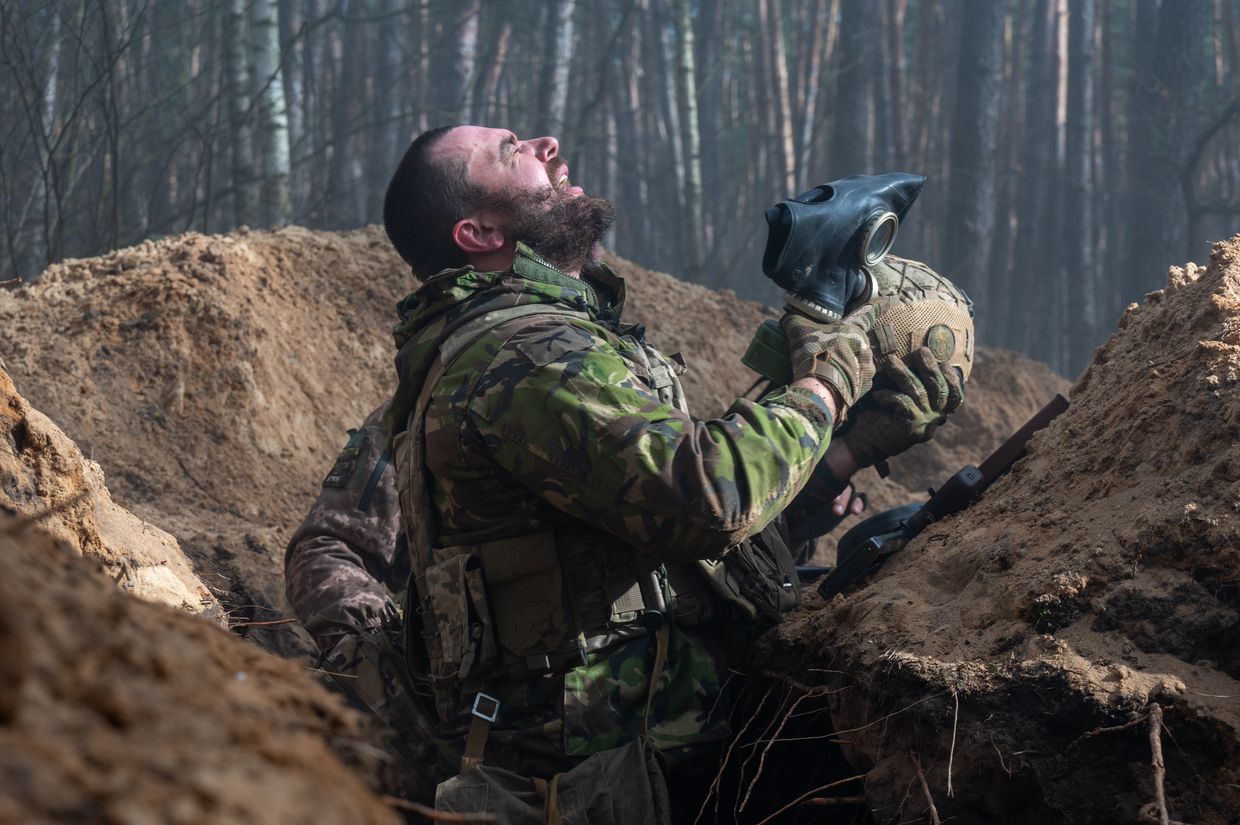Gasping for air from a trench in eastern Ukraine, an infantryman was ready for the worst when a suffocating white smoke spread into his position.
A Russian drone had just dropped a gas grenade into the trench, an internationally banned practice in warfare used to suffocate Ukrainian soldiers hiding inside. Forced out in the open, the Ukrainians immediately became vulnerable targets for Russian drones and artillery.
. . .
Russia has increasingly deployed chemical agents in its grand offensive to occupy the last cities in the Donbas region under Ukrainian control. The suffocation tactic is to take out entrenched personnel and dampen the morale of Ukrainian soldiers who – severely outmanned and outgunned – have been withdrawing village by village in the east for nearly a year.



Partially. The article is pretty thorough, and covers many angles. I suggest reading it if you haven’t.
It doesn’t cover the part about displacing oxygen, but I don’t think there are chemical agents that do that.
Lots an lots of any gas will, but then again so would water. It’s mostly an issue in confined spaces.
If you see someone lying next to a container of liquid nitrogen, don’t follow them in.